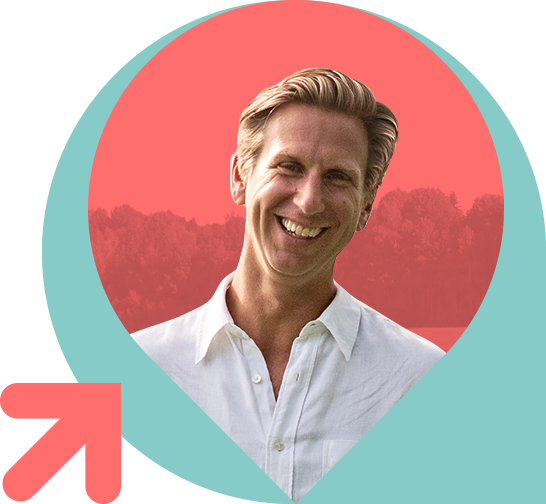Financial Freedom

Many of my clients and friends say they feel trapped in their work. This is the same whether they are employees or founders. There are a number of reasons; lack of transferable skills, not sure what else they would do, apathy, lack of a good team to take over. However, the reason that dominates is money. “I can’t afford to leave, if I just hang on another few years I will be all set”, or “we have an expensive life”. When I ask them how long they have to hang on for, or how much their lives cost, I am invariably met with silence. Today we are going to fill that silence with some ground-breaking thinking about achieving Financial Freedom.
Let’s define Financial Freedom as no longer having to work for money- you have enough to last your life. Of course, you may want to continue working, but with the Freedom to choose the amount you work, in a role that you find fulfilling. I know money can be a difficult subject to think and talk about and most of us have a complicated relationship with it. Rather than using it as a means of keeping score, or competing with others, to me the idea of money enabling freedom is deeply appealing.
There are only two numbers you need to calculate how close you are from Financial Freedom; your assets and your needs.
I met Peter Alcaraz on a Friday. It was one of those rare meetings, perhaps only once a year, where you meet someone who truly inspires you and changes the way you think. By Sunday night, I had finished his excellent book- The Wealth Game. (As a side note, some find the word wealth off-putting; here he defines it simply as having more than you need.) It is his thinking and work around calculating Assets and Needs that is so interesting. He recognises that most of us do not have the time or interest to create long complicated spreadsheets and calculate where we are financially. Hence the silence I referred to earlier.
Grab a pen and let’s work this through. This is a rough first pass, 5 minutes tops. You can refine the numbers later. Assets are fairly straightforward; take the value of property you own, add cash, any shares (with an estimate for private company shares), pensions and bonds. Then subtract any debt you have. This is your numerator (the one above the line!)
Needs are where he really cuts through all the crap. He has done the detail; worrying about the impact of inflation, or investment performance or changes in lifestyle, etc. and has come up with a very simple but accurate way of calculating your needs. Peter suggests you take a rough estimate of your current annual cost of living (food, housing, clothes, children, holidays, etc.). This is the net amount after tax that you spend every year, but not including irregular events like house renovation or buying a car, or at this stage any education costs. Now take a guess at the age you will die at and subtract your current age. I chose 90 so ended up with 46. Multiply your annual cost of living by the number of years you are going to live. If for example you think your cost of living is £40,000 per year and you will live 40 years then the number for your cost of living needs is £1.6 million. Clearly, your needs are likely to decrease over time but the beauty of Peter’s calculation is the simplicity, and erring on the side of prudence.
There are some other needs to be added. If you plan to educate your children privately through to university then add £400,000 per child. If you want to include money for care when you are elderly then add this (I included £200,000). If you want to pass money on to others (children or charity) then add this as a lump sum. Then add an amount for a car e.g, if you spend £10,000 every five years then this would be £80,000 in total to add on the 40-year life example. Finally, decide the net value of the house you want to be living in when you pass away.
If you add these together with your cost of living needs then you end up with your overall Needs number- your denominator. This can range hugely and seem out of reach, but the good news is it is much more within your control that your assets number. The key observation here is why work harder than you have to and end up with money that is left in your bank account when you die?
Assets divided by Needs gives you your Freedom number. Greater than 1, you are already financially free. Congratulations! Less than one, you have some work to do. This may be sobering, but awareness is the first step to taking control and to Freedom. There are three essential accelerants towards Freedom that Peter identifies. Let’s call them tailwinds.
Tailwind 1) Time
Compounding is incredibly powerful. If you have £100 today and it grows by 10% per year without compounding it takes 10 years to double, with compounding it only takes just over 7 years, as you are earning 10% growth on a larger number every year. Everyone has access to compounding- it requires generating and investing a cash surplus as early as you can however small.
Tailwind 2) Choices
The biggest barrier to freedom is your cost of living. With children and high housing costs this can be hard to reduce. However, spending on luxuries now hugely increases the amount of time you have to keep working later. There are always choices in what you spend money on. The key is to generate a cash surplus and put this to work every year.
Tailwind 3) Debt
Used wisely and at the right amount debt can be a huge tailwind. Used to fund assets that grow and create income, debt can help you achieve freedom years earlier. Debt on your main home, or for buying consumables, can however be a headwind as it increases your cost of living.
Consider this example to illustrate the above points. It is January 1st 2018 and I have £25,000 in savings and each year I generate a £5,000 cash surplus once I have paid for my cost of living. I have worked hard and I really want a new car. I also want to start taking nicer holidays every year. I have three potential choices here:
- Option A) From my savings, I spend £20k on a new car and then another £15k five years later to replace it. I put the remaining £5k into a savings account. From my annual surplus, I spend £4k per year on holidays and put the remaining £1k into a savings account.
- Option B) From my savings, I spend £5k on a car and then £5k in Year 3 to replace it. The balance I put in equities. From my surplus, I spend £1k per year on holidays and the rest to equities.
- Option C) From my savings, I spend £5k on a car and £20k on a deposit for a buy to let flat. I borrow £80k to fund the balance. From my surplus, I spend £1k on holidays and £4k per year reducing the mortgage.
Let’s make some very simple, example-only assumptions that equities (including dividends) grow at 5% per year net of tax and inflation and that the flat (including rent) grows at 8% per year net of tax and inflation. The savings account grows at the same rate as inflation after tax. Of course, things could be very different but these rates are not unheard of and are to illustrate the principle here. Let’s also look over 10 years – assuming that your car is worth nothing at the end of 10 years. The table below shows the value of your net assets based on these different choices.
| Total net assets (assets less debt) | |||
| Year 1 | Year 5 | Year 10 | |
| Option A – Spend | £6,000 | -£5,000 | £0 |
| Option B – Save to equities | £21,004 | £42,771 | £76,690 |
| Option C – Save to property | £32,000 | £86,933 | £175,892 |
I find this table pretty sobering. Small decisions we make now about how we spend our money have a huge impact on when, if ever, we achieve Financial Freedom. Left to our own devices, we tend to spend what we make. The truth is that without generating and investing a cash surplus the only way you will be on the road to freedom is through acts beyond your control such as the lottery or inheritance. This isn’t about deprivation and living like a monk as we are unlikely to manage this, and it is never too late to start. Real pleasure can be found in both simple things in life and actually in the process of taking control and working towards your goal of Financial Freedom.
In their book The Art of Frugal Hedonism, Annie Raser-Rowland and Adam Grubb explore ways to gain real pleasure and freedom from effectively managing their needs and focusing on activities that bring them joy and pleasure. I think deep down we know this to be true and that Retail Therapy really only results in a need for Psychotherapy.
Please note, I am no financial advisor and all of this is intended as a helpful guide only. Peter’s book contains a huge amount of useful details, and as always you should seek good professional advice on all aspects as you move forward on your journey to ensure the highest growth in your assets. One headwind worth noting and taking advice on is tax, whatever your numbers, especially given the changes in buy to let regulations. This helpful article in the FT gives some good pointers about how to start basic tax planning.
I would be really interested to hear from you on this subject. How is your Freedom number looking? Are you motivated to work on it or just put your head back in the sand? Do you find this all uncomfortable?
Please do drop me a reply. In the meantime try enjoying the calculating as a simple pleasure.
Ed
More Articles
Organisational health - the heartbeat of a business
Organisational health- the heartbeat of a business When we talk about business success, we often look first at strategy; the clever plan, the…
Rituals
Rituals surround us at work, in society and at home. They help manage emotions- think about what happens when someone dies…
How to take the right risks
Individuals and organisations can both benefit from a more entrepreneurial approach. Starting a new business, solving difficult problems…


